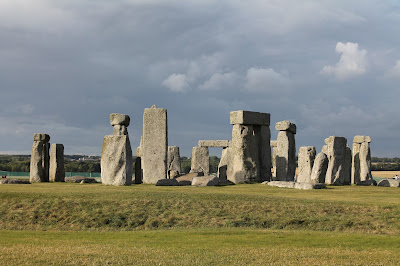How to spend New Year's Day by Griselda Heppel
 |
| London coffee-house 1674 |
‘On the first day of this month, I met Mr Hooke
at Child’s coffee house in St Paul’s Churchyard after he had addressed the new
Philosophical club within the Royal Society. We stayed until 11 pm, eating meat
and drinking chocolate.' (1 January, 1676) From John Aubrey My
Own Life by Ruth Scurr.
I challenge anyone to find a better way of
spending New Year’s Day. It has everything: a lecture from one of the founding
fathers of modern physics, an evening spent in conversation with the great man,
sustenance – how well-cooked isn’t mentioned, but the dinner sounds solid
enough – accompanied by, oh joy, a steady supply of hot chocolate. Somehow this
last detail sharpens the immediacy of the scene (though that may say more about
the place of chocolate in my own life than in John Aubrey’s or Robert Hooke’s).
I belong to a very small book group. There are
three of us. So disorganised are we that managing four meetings a year is good
going; agreeing on a book to read, a bonus; and the possibility that at least
two thirds of the group will have read the book by the time the meeting takes
place, a positive miracle. Shocking, such lack of discipline, and of course we
could do better; yet even such unpromising circumstances have led us to read
books we wouldn't otherwise have done, surely the ultimate achievement of any
book group. In 2016, John Aubrey My Own Life by Ruth Scurr became one of these.
Engaging, self-effacing, easily distracted and financially chaotic, Aubrey saw his role as enabling the talents of brilliant contemporaries to find expression, quoting the Roman poet Horace: ‘I perform the function of a whetstone, which can make the iron sharp, though is itself unable to cut.’ Friend and supporter to so many scientists, architects, doctors, antiquarians and other eminent people, a writer who compiled reams of notes on all subjects that fascinated him, yet succeeded in publishing only one, relatively minor, work in his lifetime (Miscellanies; A Collection of Hermetick Philosophy 1696), Aubrey as a subject might, Ruth Scurr feared, ‘vanish inside a conventional biography.’ If only he, like Pepys and Evelyn, had kept a diary...
And there Scurr found her answer. Using Aubrey’s
own few pages of autobiographical writing combined with his immense amount of
correspondence, she has constructed his life in diary form.
She invents nothing: if there’s no evidence for where he is or what he thinks
in one particular period, then those months are thinner than others for which there
is much more. Some 35 pages of endnotes cite sources for the diary entries, proving how scrupulously Scurr adheres to
Aubrey’s voice alone, resisting all temptation to embroider or speculate. As a
result, John Aubrey leaps from the page, his charming, inquisitive, modest,
intelligent, forgiving and, at times, infuriating personality growing
organically as the book progresses. Other well-known historical figures are
fleshed out along the way: the hard-headed Elias Ashmole, bequeathing his
antiquarian collection to Oxford on condition the University built a museum to
house it; or a surprisingly devious Antony Wood, borrowing manuscripts from
Aubrey which he ‘forgets’ to return for months despite his friend’s pleas. One
of my favourite characters is Mr Wylde, if only because, according to the ‘diary’,
his main role in Aubrey’s life seems to have been to accompany him to coffee houses and annoy Mr Hooke with assertions such as ‘the blood of a black cat can
cure chilblains.’
We owe much to John Aubrey. Today he’s most
famous for his collection of short biographies of such 16th and 17th century
figures as Francis Bacon, William Shakespeare, Thomas Hobbes, Robert Boyle,
John Dee, Thomas Browne and others in Brief
Lives. Yet his passion for preserving the past led him, while still an
impecunious student at Oxford, to commission a drawing of the ruins of OsneyAbbey: a vital record, since what remained of the buildings collapsed only a
few years later.
He discovered a series of holes at
Stonehenge, now named after him, and fought to prevent the megaliths at Avebury from being chipped at by the locals for building material. His suggestion that druids built Stonehenge, while making the date too recent by thousands of years, brought him still nearer the truth than contemporary beliefs that the stone monument was the work of the Danes or - as asserted by Inigo Jones - the Romans. (For a clever, well-written and amusing discussion of theories about the monument down the centuries, see Stonehenge by Rosemary Hill.)
 |
| Stonehenge |
Stonehenge, now named after him, and fought to prevent the megaliths at Avebury from being chipped at by the locals for building material. His suggestion that druids built Stonehenge, while making the date too recent by thousands of years, brought him still nearer the truth than contemporary beliefs that the stone monument was the work of the Danes or - as asserted by Inigo Jones - the Romans. (For a clever, well-written and amusing discussion of theories about the monument down the centuries, see Stonehenge by Rosemary Hill.)
And I needn’t have let the book’s length daunt
me. The diary device allows information about these achievements and much more to
flow easily across the pages, interspersed with such gems as:
‘Jane Smyth, who
is somewhat better, and I met Mr Hooke this evening at Cardinal’s Tavern in
Lombard Street. We drank until past midnight and Mr Hooke vomited up wine’ (12
March, 1677).
 Note to Mr Hooke: next time, stick to hot chocolate.
Note to Mr Hooke: next time, stick to hot chocolate.
Find out more about Griselda Heppel here:


Comments